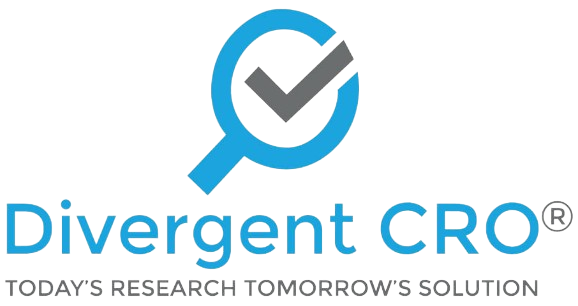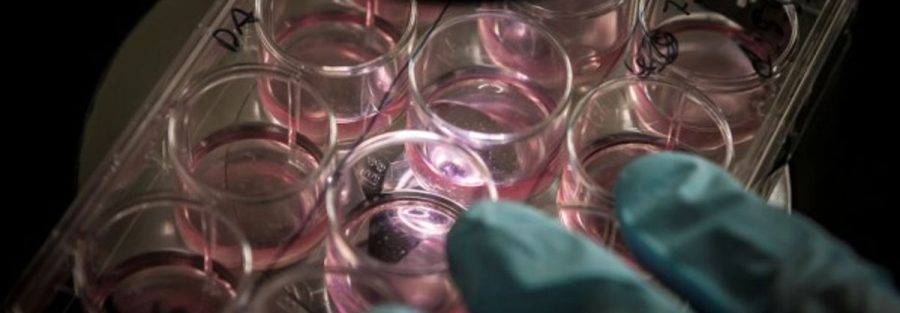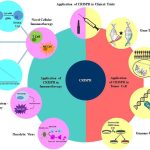Stem cell research stands as a beacon of hope, offering transformative potential to revolutionize medical treatments, advance regenerative medicine, and pave the way for innovative therapies. This article delves into the significant strides made in the field, the ethical dilemmas it faces, and the regulatory landscapes it must navigate. We explore the clinical impact of stem cell therapy and its potential to address complex medical challenges, all while considering the ethical implications of such profound scientific advancements.
Key Takeaways
- Stem cell research has undergone remarkable advancements, notably in converting adult cells to stem cells, which may alleviate some ethical concerns.
- The ethical debate over the use of embryonic stem cells persists, highlighting the need for a nuanced ethical framework to guide research and application.
- Regulatory pathways for stem cell therapies are complex, requiring close collaboration between researchers, clinicians, policymakers, and the public.
- Stem cell therapy has the potential to significantly impact the treatment of degenerative diseases and spinal cord injuries, reshaping future medical interventions.
- The future of regenerative medicine hinges on sustained support and ethical scrutiny, with stem cell banking posing as a pivotal aspect of ongoing research.
The Transformative Journey of Stem Cell Research

Historical context and advancements
The field of stem cell research has undergone a remarkable evolution since its inception. Stem cells’ unique ability to differentiate into various cell types has positioned them as a cornerstone of regenerative medicine and personalized treatments. The historical context of stem cell research is rich with scientific curiosity and breakthroughs that have paved the way for today’s innovations.
- Embryonic stem cells were first isolated in 1998, marking a significant milestone.
- Adult stem cells, found in various tissues, have been used in medical treatments for decades.
- The discovery of induced pluripotent stem cells (iPSCs) in 2006 revolutionized the field by allowing adult cells to be reprogrammed into stem cells.
The versatility of stem cells for targeted regeneration has not only provided hope for those suffering from degenerative diseases but also sparked a resurgence of ethical debates. As we reflect on the advancements, it is crucial to balance the excitement of scientific progress with thoughtful consideration of the ethical implications.
Breakthroughs in converting adult cells to stem cells
The field of stem cell research has witnessed significant strides in the ability to convert adult cells into pluripotent stem cells (iPSCs). This innovation has been pivotal in overcoming the ethical and practical limitations associated with embryonic stem cells. iPSCs are derived from adult somatic cells, such as skin or blood cells, which are reprogrammed back into an embryonic-like state, allowing them to differentiate into a variety of cell types.
The versatility of iPSCs has opened up new avenues for personalized medicine, as they can be generated from a patient’s own cells, reducing the risk of immune rejection.
A notable example of this progress is the work of Shinya Yamanaka, who demonstrated that introducing four specific genes into adult cells could effectively turn back the clock, transforming them into iPSCs. This discovery has not only expanded the potential applications of stem cells in regenerative medicine but also highlighted the importance of ethical considerations in stem cell research.
- Advances in the differentiation of pluripotent stem cells into vascular and other specialized tissues have been reported, indicating a broadening scope of potential treatments.
- In a significant study, iPSCs were co-cultured with mouse bone marrow stromal cells, successfully differentiating them into CD34 positive cells, a marker for blood progenitor cells.
Resurgence of ethical concerns and the need for non-binary perspectives
The ethical landscape of stem cell research is witnessing a resurgence of concerns, particularly around the implications for health outcomes for marginalized people. As the field advances, it’s crucial to adopt non-binary perspectives that move beyond a simplistic pro-and-con approach to ethics. This involves recognizing the complex interplay of scientific innovation, societal values, and individual rights.
- The importance of involving the public in emerging biotechnologies to prevent disproportionate responses.
- The need for a nuanced ethical framework that accommodates diverse viewpoints.
- The significance of regulatory governance to ensure responsible research and application.
The dialogue on stem cell research ethics must be inclusive, considering the varied implications for different segments of society. It’s not just about the potential benefits, but also about who gets to access them and on what terms.
The call for governance in stem cell research echoes the broader demand for ethical oversight in synthetic biology and related fields. It’s essential to engage both lay and professional perspectives to shape a regulatory environment that is both scientifically sound and ethically just.
Navigating the Ethical Maze in Stem Cell Innovation

Dilemmas and differing views on embryo moral status
The moral status of embryos in stem cell research is a deeply contested issue, with opinions ranging from viewing embryos as entities with full moral status to considering them as clusters of cells with potentiality. The crux of the debate hinges on the embryo’s potential to develop into a full human being and the ethical implications of its use in research.
Proposed scientific solutions aim to navigate these ethical waters by exploring new research avenues that avoid the disaggregation of blastocysts or altering the sperm, egg, or fertilization process. These approaches strive to reconcile scientific progress with moral considerations.
The quest for ethical stem cell derivation is not just a scientific challenge but a moral imperative that requires innovative thinking and respectful dialogue.
The varying perspectives on embryo moral status are not only scientifically relevant but also normatively fundamental, raising questions about what embryo legislation aims to protect. Public involvement is crucial in developing legislation that reflects democratic values and instills confidence in the field’s future development and regulation.
Historical ethical debates and recent developments
The ethical discourse surrounding stem cell research has been fraught with contention, particularly in the realms of commercial and reproductive applications. These domains have historically polarized public opinion, influencing attitudes toward emerging biotechnologies. Recent challenges have only intensified the need for a nuanced ethical framework that can accommodate the complexities of stem cell research.
The ethical landscape has been shaped by a series of debates and developments:
- The commercialization of stem cell technologies and its impact on public perception.
- The ethical implications of reproductive applications of stem cell research.
- Calls for a depolarization of ethical debates to facilitate constructive dialogue.
- The recognition of the importance of public involvement in the development of biotechnologies.
The scientific and medical benefits of stem cells must be balanced against moral considerations, highlighting the intricate nature of the ethical landscape in this field.
Proposing a nuanced ethical framework
In the quest to balance scientific progress with moral responsibility, a nuanced ethical framework is essential. This framework should not only address the moral status of embryos but also consider the broader implications of stem cell research, including its potential applications and societal impact.
- Moral Status: The framework must grapple with the moral status of embryos and stem cells, recognizing the diversity of perspectives.
- Regulatory Oversight: It should advocate for clear guidelines that regulate morally contentious features in stem cell research.
- Public Engagement: Encouraging public dialogue and understanding is crucial for aligning research with societal values.
- Collaborative Design: Involving a range of stakeholders in the design of research protocols can help to ensure ethical integrity.
The ethical framework we propose aims to be inclusive, dynamic, and responsive to the evolving landscape of stem cell research. It seeks to integrate public perspectives, scientific innovation, and ethical considerations in a manner that respects diverse viewpoints while fostering responsible research practices.
The framework should be flexible enough to adapt to new scientific developments and societal shifts. It must also be robust enough to provide clear guidance on contentious issues such as commercial and reproductive applications of stem cell technologies. By embracing complexity and striving for a balance between innovation and ethics, we can pave the way for stem cell research that is both scientifically fruitful and ethically sound.
Regulatory Pathways and Stem Cell Therapies

Complexities in obtaining regulatory approvals
The pathway to regulatory approval for stem cell therapies is fraught with challenges. Ensuring the safety and efficacy of these treatments is paramount, and regulatory bodies like the FDA in the United States and Japan’s health authorities have set stringent standards to be met. These standards are crucial for maintaining public trust and ensuring patient health.
- Rigorous testing and review processes are in place to validate the safety and performance of stem cell therapies.
- Clinical trials are ongoing, and many therapies have yet to receive full approval.
- Autologous stem cell therapies, in particular, face additional hurdles in gaining validation and approval.
The intricacies of regulatory approval processes underscore the need for a robust framework that balances innovation with patient safety and ethical considerations.
Japan’s approach to regulation is noteworthy, having introduced laws that allow for conditional approval of cell-based treatments. This facilitates earlier access to potentially life-saving therapies while still ensuring a degree of oversight and continued evaluation.
Exploring new research avenues for ethical stem cell derivation
The quest for ethical stem cell derivation has led to innovative approaches that circumvent traditional ethical dilemmas. Scientists are now investigating methods to derive pluripotent cells without the need for blastocyst disaggregation, which has been a major source of controversy. These new techniques include altering the sperm, egg, or fertilization process to obtain stem cells in a manner that respects ethical considerations.
The development of these novel strategies represents a significant step forward in reconciling scientific progress with ethical standards. It is a testament to the scientific community’s commitment to finding solutions that are both effective and morally responsible.
Furthermore, the following table outlines some of the key methods under exploration:
| Method | Description | Ethical Advantage |
|---|---|---|
| Somatic Cell Nuclear Transfer (SCNT) | Replacing the nucleus of an egg cell with that of a somatic cell. | Avoids the use of embryos. |
| Induced Pluripotent Stem Cells (iPSCs) | Reprogramming adult cells to a pluripotent state. | Utilizes non-embryonic sources. |
| Gene Editing | Modifying genes to prevent certain diseases. | Potentially reduces the need for embryonic cells. |
These advancements are not only promising for the field of regenerative medicine but also for the broader dialogue on how to ethically navigate the complexities of stem cell research.
Encouraging collaboration between stakeholders
The success of stem cell therapies hinges not only on scientific breakthroughs but also on the collaborative efforts of various stakeholders. As demand for cellular therapies increases, stakeholders should collaborate from the early phases of clinical trials to streamline processes and standardize practices. This multi-stakeholder approach includes healthcare centers, research institutions, regulatory bodies, and patient advocacy groups.
Collaboration is not just a strategic choice but a necessity to ensure the ethical and efficient advancement of stem cell therapies. It fosters transparency, public trust, and aligns the goals of different entities towards a common good.
The following points highlight the importance of stakeholder collaboration:
- Establishing healthcare center-based cell therapy laboratories to support development and delivery.
- Creating forums for continuous dialogue, addressing public concerns, and incorporating societal values.
- Developing shared protocols to ensure quality and safety across different stages of therapy development.
- Engaging in joint funding initiatives to support research and reduce financial barriers.
The Clinical Impact of Stem Cell Therapy

Addressing degenerative diseases and spinal cord injuries
Stem cell therapy represents a beacon of hope for individuals suffering from degenerative diseases and spinal cord injuries, conditions that have traditionally been challenging to treat. The advent of stem cell applications in this domain is not just a scientific advancement; it’s a paradigm shift in how we approach the healing process.
In the realm of spinal cord injuries, the limitations of conventional treatments often leave patients with few options. However, recent regulatory approvals, such as those in Japan, have set a precedent for the use of stem cell therapies. Clinical trials have shown significant improvements in patient sensation and mobility, heralding a new era of medical interventions.
The first experiments with rats yielded encouraging results, suggesting that injection of microgel-packaged stem cells may reduce pain from damaged discs.
This innovative approach has the potential to not only alleviate symptoms but also to regenerate damaged tissues, offering patients a chance at recovery that was once deemed impossible. As we continue to explore the capabilities of stem cells, the promise of restoring function and improving quality of life for countless individuals becomes increasingly tangible.
Potential to reshape medical solutions and therapeutic interventions
Stem cell research stands as a beacon of hope, offering transformative potential to revolutionize medical treatments and pave the way for innovative therapies. The ability of stem cells to differentiate into various cell types presents unprecedented opportunities in regenerative medicine.
Recent research has highlighted mesenchymal stem cells (MSCs) as potential contributors to cartilage repair, anti-inflammatory modulation, and immune regulation. This has opened new avenues for addressing complex diseases and injuries that require transformative breakthroughs.
The clinical application of stem cell-based therapies is not just a scientific advancement but a paradigm shift in how we approach the treatment of debilitating diseases.
With sustained support and ethical scrutiny, the global biomedical research community is poised to make significant strides in personalized healthcare. The following points outline the impact of stem cell therapy in various medical domains:
- Cartilage repair and joint regeneration
- Modulation of inflammatory responses
- Regulation of immune system functions
- Treatment of spinal cord injuries and neurodegenerative disorders
As we continue to explore the full potential of stem cells, it is crucial to maintain a balance between innovation and ethical considerations, ensuring that the benefits of these therapies are realized responsibly.
Ethical considerations in clinical applications
The clinical application of stem cell therapy is fraught with ethical considerations that must be meticulously addressed. Diversity in clinical trials is a critical aspect, ensuring that the benefits of stem cell therapies are accessible and effective across various population groups. This not only enhances the generalizability of the results but also upholds the ethical principle of justice in research.
In the context of stem cell therapy, ethical challenges such as forbidden and permitted sources of stem cells, informed consent, beneficence, and the commercialization of treatments require careful scrutiny. The balance between potential benefits and ethical implications is delicate, and the inclusion of diverse populations in clinical trials is essential for a comprehensive understanding of the therapy’s impact.
The ethical landscape of stem cell therapy is complex, with the need to navigate between advancing medical science and respecting moral boundaries. It is imperative that the clinical applications of these therapies are guided by a robust ethical framework that considers the nuances of each case.
Future Perspectives and Final Thoughts on Stem Cell-Based Therapies

The potential impact of stem cell banking
Stem cell banking represents a significant leap forward in personalized medicine, offering a repository of cells that can be used for future therapeutic applications. The ability to store umbilical cord stem cells and induced pluripotent stem cells (iPSCs) is particularly transformative, as it ensures a supply of cells that can proliferate indefinitely and be tailored to individual patient needs.
The California Institute for Regenerative Medicine’s establishment of an iPSC repository exemplifies the strides being made in this area. This repository provides researchers with a diverse range of cell lines, crucial for the development of advanced therapies. As stem cell banking becomes more prevalent, it could lead to breakthroughs in treating a wide array of diseases, including those currently deemed incurable.
The promise of stem cell banking lies not only in the potential to treat over 80 diseases but also in the hope it offers for future medical discoveries and the ability to address complex regulatory challenges.
While the future is bright, the path to widespread adoption of stem cell banking is fraught with challenges, including the need for stringent regulatory guidelines to ensure patient safety and the validation of autologous stem cell-based therapies.
Sustained support and ethical scrutiny for ongoing research
The trajectory of stem cell research is marked by a delicate balance between groundbreaking scientific progress and the profound ethical considerations it entails. Sustained support for stem cell research is crucial, not only for the potential health benefits but also for the continued exploration of ethical frameworks that guide this field. The ethical scrutiny of stem cell research is an ongoing process, one that evolves with each new discovery and application.
Public engagement and regulatory oversight are essential components in maintaining trust in the scientific community and ensuring that research advances do not outpace ethical considerations. A consensus on the moral status of human embryonic-like structures (hELS) and the degree of regulatory oversight required is still in formation, reflecting the complexity of the ethical landscape.
- Public engagement is key to societal acceptance.
- Regulatory oversight must adapt to new scientific developments.
- Ethical frameworks should be revisited regularly to stay relevant.
The need for a dynamic approach to ethical scrutiny is underscored by the diverse perspectives on the moral status of stem cells and the potential for exploitation. This underscores the importance of a flexible and responsive regulatory framework that can accommodate the rapid pace of scientific advancement while addressing ethical concerns.
The road ahead for regenerative medicine and innovative therapies
As we peer into the future of regenerative medicine, the landscape is ripe with potential for transformative therapies. The promise of stem cell-based treatments is not just a distant dream but a burgeoning reality, with stem cell banking emerging as a cornerstone for this medical revolution. These banks serve as repositories of diverse stem cell lines, ensuring a robust supply for research and therapeutic applications.
The scope of regenerative medicine is expanding, with stem cell therapies at the forefront of this evolution. They offer a beacon of hope for patients with conditions previously deemed untreatable, signaling a shift towards more personalized and effective healthcare solutions. The journey ahead is marked by the need for sustained support and ethical scrutiny, as each breakthrough brings us closer to the goal of curing complex diseases.
Looking ahead, the synergy between innovation, strategic partnerships, and infrastructure will be crucial. Investments in talent and technology will catalyze the progress of induced pluripotent stem cells, potentially revolutionizing healthcare as we know it.
The road ahead for regenerative medicine is illuminated by the ongoing research and development in stem cell therapies. With the right balance of enthusiasm and caution, the future holds unprecedented opportunities for healing and restoration.
Conclusion
In summary, stem cell research embodies a paradigm of hope and innovation in the medical field, with the potential to fundamentally alter our approach to treating a myriad of diseases. As we have explored, the advances in stem cell therapy, particularly in areas such as spinal cord injury treatment, highlight the transformative power of this research. However, the journey is not without its ethical quandaries and regulatory hurdles. The moral status of embryos, the safety and efficacy of treatments, and the need for a nuanced ethical framework are critical considerations that must be navigated with care. The path forward requires a collaborative effort among scientists, ethicists, policymakers, and the public to ensure that the immense potential of stem cell research is realized in an ethically responsible manner. As we continue to push the boundaries of what is possible, sustained support and ethical scrutiny will be paramount in harnessing the full promise of stem cell-based therapies for the betterment of human health.
Frequently Asked Questions
What are the key ethical concerns in stem cell research?
The primary ethical concerns revolve around the use of embryonic stem cells, which involves the destruction of embryos, and the moral status of these embryos. There are also issues related to consent, the commodification of human life, and the potential for exploitation in the collection of donor eggs or embryos.
How have advancements in stem cell research impacted the treatment of degenerative diseases?
Advancements have led to the development of therapies that can potentially repair damaged tissues and organs, offering hope for the treatment of degenerative diseases such as Parkinson’s, Alzheimer’s, and various forms of heart disease. These therapies are still under research but have shown promising results in clinical trials.
What is the significance of converting adult cells to stem cells?
Converting adult cells to stem cells, or inducing pluripotency, allows for the generation of patient-specific stem cells without the ethical issues associated with embryonic stem cells. This breakthrough has the potential to revolutionize personalized medicine and reduce the risk of immune rejection in transplants.
What role does regulatory approval play in stem cell therapy?
Regulatory approval is crucial for ensuring the safety and efficacy of stem cell therapies. Regulatory bodies like the FDA scrutinize the research, clinical trials, and manufacturing processes to protect patients from potential risks and to ensure that the benefits of such therapies are well-substantiated.
How can stem cell banking impact future medical treatments?
Stem cell banking allows for the storage of stem cells, which can be used in future medical treatments for a variety of diseases. This not only aids in personalized medicine but also in the advancement of research and the potential development of new therapies.
What are the challenges in ensuring ethical stem cell research and therapy?
Challenges include balancing the promise of stem cell therapies with ethical considerations, obtaining informed consent, ensuring equitable access to treatments, and fostering public trust through transparent and responsible research practices. A nuanced ethical framework and collaboration among stakeholders are essential.



